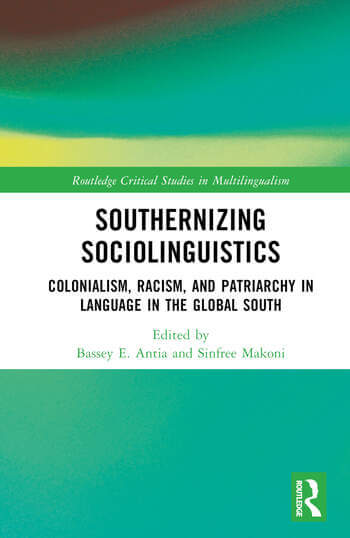Bassey E. Antia, Sinfree Makoni
This innovative collection offers a pan-Southern rejoinder to hegemonies of Northern sociolinguistics. It showcases voices from the Global South that substitute alternative and complementary narrations of the link between language and society for canonical renditions of the field.
Drawing on Southern epistemologies, the volume critically explores the entangled histories of racial colonialism, capitalism, and patriarchy in perpetuating prejudice in and around language as a means of encouraging the conceptualization of alternative epistemological futures for sociolinguistics. The book features work by both established and emerging scholars, and is organized around four parts: The politics of the constitution of language, and its metalanguage, in the Global South; Who gets published in sociolinguistics? Language in the Global South and the social inscription of difference; and Learning and the quotidian experience of language in the Global South.
This book will be of interest to scholars in sociolinguistics, applied linguistics, critical race and ethnic studies, and philosophy of knowledge.
